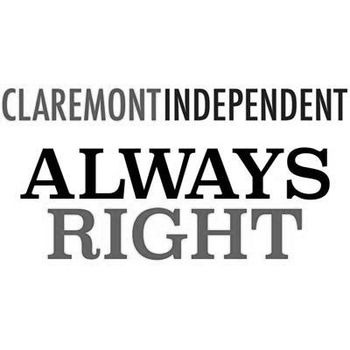Scripps 'Unofficial Survival Guide' claims 'hatred of white people' is 'legitimate response to oppression'
Last summer, two Scripps College students spent approximately 500 hours creating a 217-page “ Unofficial Scripps Survival Guide” intended to help new students acclimate to the college, with lengthy discussions of topics ranging from food and money management to gender identity, race, and privilege.
The authors state that the term “Preferred Gender Pronoun” (PGP) should be replaced with “Gender Pronoun” to avoid offending students whose gender identity differs from their biological sex.
“While it may seem new and positive, PGP is actually not a good thing,” they write. “There’s nothing wrong with Gender Pronouns! However once we say ‘preferred’ we’re invalidating the entire idea. How people identify is how they identify; it is not a ‘preference.’”
Another section dedicated to being a “Trans* Ally” prompts new Scripps students to ask for each of their peers’ gender pronouns in order to avoid unwittingly enforcing the gender binary when they interact with others. “Enacting a life of accountability and ownership over your own domination and privileges is the only way you can exhibit allyship,” the guide adds.
The Scripps Survival Guide defines “White Privilege” as “the set of unearned benefits white people gain as a result of systematic racism and discrimination” that “benefits even those white people who are disadvantaged by other forms of institutionalized oppression like ableism, classism, sexism, homophobia, and transphobia.”
The authors add that “asking people of color to educate us about racism,” “asking people of color to absolve us of our guilt,” and “identifying the ways that we are engaging in the perpetuation of white supremacy” are all things that “we need to stop doing right now.” In a section titled “Dear white students,” they elaborate that “[r]everse racism cannot exist because white people maintain power over people of color” and “because there are no institutions that were founded with the intention of discriminating against white people on the basis of their skin [color].”
Since the guide’s publication, several student movements across the Claremont College system (the “5C’s”)—including a “Hurting and Healing” event held by The 5C Students of Color Alliance—have advocated for the creation of racially segregated spaces (called “Safe Spaces”) that are off-limits to white students.
The Motley, a student run café on Scripps’ campus, has already held events exclusively for people of color, a form of segregation the guide justifies by asserting that some spaces are “harmful” for people of color, and that creating segregated safe spaces is simply “the least we can do” for non-white students.
“Anger is a legitimate response to oppression,” the authors state in their letter to white people, “as is sadness, fear, frustration, exhaustion, and a general distaste or hatred of white people.”
Sections of the Survival Guide addressing “Mindful Language” and “Inclusive Language” tell students to watch what they say inside the classroom, identifying “capitalism and consumerism” as concepts which “can lead to [the] dangerous promotion of certain ideals and widespread circulation of stigmatizing information.”
The guide also castigates “those who oppose trigger warnings,” accusing these people of being uncaring and “potentially sexist, ableist, homophobic, racist, classist, etc.”
It is particularly adamant about the evils of “ableist” language, denouncing the use of words like “insane” and “stupid” as “using disability as a metaphor to describe something negative” and “reinforcing [the idea] that mentally ill people shouldn’t be listened to, believed, or valued.” Instead, students are urged to use the term “differently abled” rather than “disabled” when referring to those with physical disabilities because “differently abled” represents the idea that “disabled people are just as valid as everyone else” and that “being disabled in a [sic] ableist world means lack of power and access.”
The authors conclude the section by urging students to replace words such as “crazy,” “dumb,” and “stupid” with words like “unruly,” “moody,” and “dismantled.” The authors also advise against describing young people as “kids” or “teens,” observing that such terms are “patronizing” because of how they “belittle and demean young people’s power” and play into the assumption that “teens are incapable of certain leadership roles or don’t have the mental capacity/self[-]control/understanding to articulate or make good decisions.”
Though the Survival Guide is unofficial, some administrators at Scripps College have expressed support for it.
“This student-conceived and student-authored publication is an excellent example of how serious Scripps students are about supporting the newest members of the Scripps community,” stated Charlotte Johnson, Scripps’ Vice President for Student Affairs and Dean of Students, who incidentally has also described the phrase “#Trump2016” as “racism” and “intimidation.”
Follow the Claremont Independent on Twitter: @CmontInd
This article was originally published in The Claremont Independent, a conservative student newspaper affiliated with the Leadership Institute's Campus Leadership Program. Its articles are republished here with permission.

